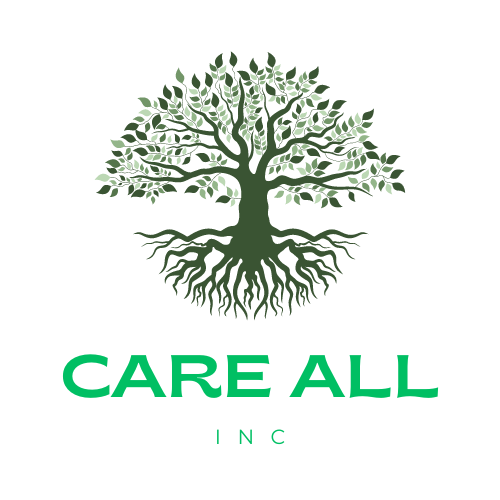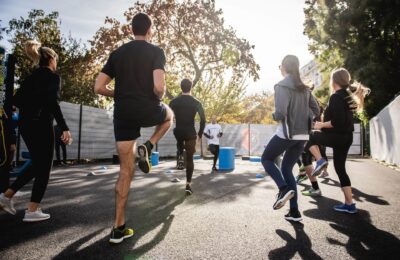Most people underestimate their daily water needs by nearly 40%. While you might think that occasional thirst signals are normal, your body may be operating in a state of chronic mild dehydration without you realizing it.
Proper hydration goes far beyond simply quenching thirst. It impacts every system in your body, from cognitive function and energy levels to skin health and immune response. The good news? Developing effective hydration habits is one of the simplest yet most powerful changes you can make for your overall well-being.
This post explores the science-backed hydration benefits that extend well beyond basic survival, practical strategies to optimize your daily water intake, and sustainable, healthy habits that will keep you properly hydrated throughout your busy life.
The Science Behind Optimal Hydration
Your Body’s Hidden Water Requirements
Water comprises approximately 60% of your total body weight, with your brain and heart containing roughly 73% water. Every single cell, tissue, and organ depends on adequate hydration to function properly. When water intake falls short, your body begins making compromises that affect performance long before you feel thirsty.
Research shows that even mild dehydration—losing just 2% of your body weight in fluids—can impair concentration, increase fatigue, and reduce physical performance. Your kidneys, which filter about 50 gallons of blood daily, require consistent water intake to remove toxins efficiently.
Beyond Basic Survival: Advanced Hydration Benefits
Proper hydration delivers remarkable benefits that many people never connect to their water intake. Studies demonstrate that well-hydrated individuals experience improved mood stability, with participants showing 25% better emotional regulation compared to those with inadequate fluid intake.
Your cardiovascular system also relies heavily on proper hydration. Blood plasma is 90% water, and maintaining adequate fluid levels helps your heart pump blood more efficiently. This reduces strain on your cardiovascular system and can contribute to healthier blood pressure levels.
Cognitive performance receives a significant boost from optimal hydration. Research indicates that maintaining proper fluid balance can improve memory formation by up to 15% and enhance focus during complex mental tasks.
Calculating Your Personal Water Intake Needs
Individual Factors That Affect Requirements
Your optimal water intake depends on multiple personal factors beyond the standard “8 glasses per day” recommendation. Body weight, activity level, climate, and overall health status all influence your hydration needs.
Active individuals require additional fluid replacement to compensate for sweat losses. For every hour of moderate exercise, you should consume an extra 12-16 ounces of water beyond your baseline needs. Hot weather conditions can increase these requirements by 16-24 ounces daily.
Certain health conditions and medications also affect water intake requirements. Fever increases fluid needs, while some medications can have diuretic effects that require compensation through increased consumption.
Practical Calculation Methods
A more personalized approach involves calculating water intake based on body weight. Aim for 0.5 to 1 ounce of water per pound of body weight as your baseline. A 150-pound person would target 75-150 ounces daily, adjusting upward based on activity and environmental factors.
Monitor your hydration status through simple indicators like urine color and frequency. Pale yellow indicates good hydration, while dark yellow suggests you need to increase fluid intake. Urinating every 3-4 hours typically signals adequate hydration.
Developing Sustainable Hydration Habits
Morning Hydration Strategies
Starting your day with proper hydration sets a positive foundation for meeting daily fluid needs. Keep a water bottle beside your bed and drink 16-20 ounces upon waking. This helps replenish fluids lost during sleep and kickstarts your metabolism.
Consider adding a pinch of high-quality sea salt or a few drops of lemon to morning water. These additions can enhance absorption and provide electrolytes that support cellular hydration throughout the day.
Smart Hydration Throughout Your Day
Integrate water consumption into existing routines rather than trying to remember separate hydration schedules. Drink water before each meal, which aids digestion and helps you naturally space fluid intake throughout the day.
Technology can support consistent hydration habits. Smartphone apps can send gentle reminders, while smart water bottles track consumption and provide feedback on daily progress. Choose tools that feel supportive rather than overwhelming.
Evening Hydration Balance
Balance adequate evening hydration with quality sleep by tapering water intake 2-3 hours before bedtime. This prevents sleep disruptions while ensuring you maintain proper fluid levels overnight.
If you experience nighttime thirst, keep a small amount of room-temperature water nearby rather than consuming large quantities that could interrupt sleep patterns.
Enhancing Hydration Quality and Absorption
Water Quality Considerations
The quality of your water intake matters as much as quantity. Filtered water removes chlorine, heavy metals, and other contaminants that can affect taste and potentially impact health. Invest in a quality filtration system or use filtered water sources when possible.
Temperature can influence consumption patterns. Room temperature water is often easier to drink in larger quantities, while slightly cool water may be more refreshing and encourage consistent intake.
Natural Hydration Enhancers
Certain foods can significantly contribute to daily fluid intake while providing additional nutritional benefits. Watermelon, cucumbers, and leafy greens contain high water content and valuable electrolytes that support optimal hydration.
Herbal teas count toward daily water intake while offering unique health benefits. Chamomile, peppermint, and ginger teas provide hydration along with compounds that support digestion, relaxation, and immune function.
Electrolyte Balance for Better Absorption
Pure water isn’t always optimally absorbed by your cells. Adding natural electrolytes can improve hydration efficiency, particularly during periods of increased fluid loss through exercise or hot weather.
Natural options include coconut water, which provides potassium and magnesium, or adding a small amount of high-quality sea salt to drinking water. These additions help your body retain and utilize fluids more effectively.
Your Path to Optimal Hydration
Transforming your hydration habits doesn’t require dramatic changes or expensive supplements. Start by identifying your personal water intake needs based on body weight, activity level, and lifestyle factors. Implement simple strategies like morning hydration routines and meal-time water consumption to build consistent, healthy habits.
Pay attention to quality alongside quantity by choosing filtered water and incorporating natural electrolyte sources when appropriate. Monitor your body’s responses through simple indicators like energy levels, skin appearance, and urine color.
Remember that sustainable hydration is about creating systems that work with your lifestyle rather than against it. Small, consistent improvements in your water intake will compound over time, leading to noticeable hydration benefits that support your overall health and vitality.






